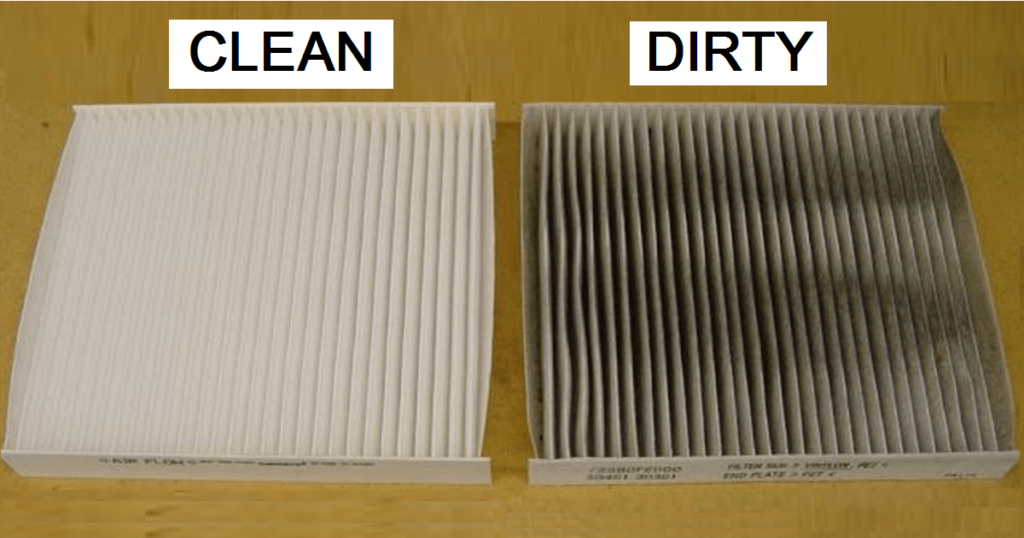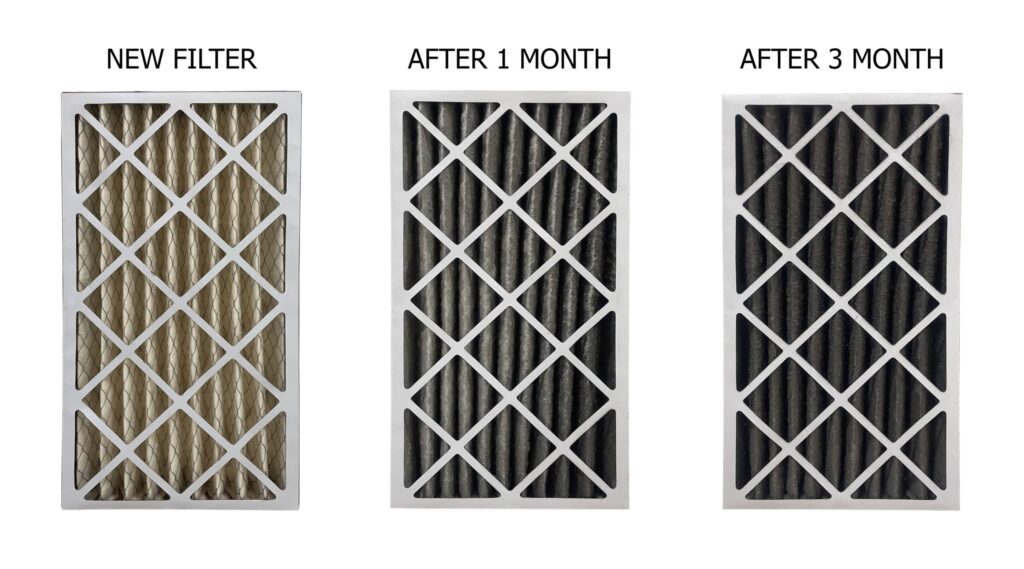
Are you constantly finding yourself changing your HVAC filter more often than necessary? It can be frustrating to feel like you’re always battling a dirty and clogged filter. But have you ever wondered why your HVAC filter gets dirty so quickly in the first place? In this blog post, we’ll explore the reasons behind this common issue and provide some insights that may help you keep your HVAC system running smoothly. So grab a cup of coffee and let’s dive into the world of HVAC filters!
What Is An HVAC Filter?

An HVAC filter is an essential component of your heating, ventilation, and air conditioning (HVAC) system. It serves as a barrier that traps dust, debris, pollutants, and allergens to ensure cleaner indoor air quality. Simply put, it acts as the lungs of your HVAC system by capturing particles that can affect both the performance of the system and your health.
The main purpose of an HVAC filter is to protect the equipment from dirt buildup. When air circulates through the system, it passes through the filter where particles are trapped. Over time, these particles accumulate on the filter’s surface and start clogging it up.
Different types of filters are available in varying levels of efficiency – from basic fiberglass filters to high-efficiency particulate air (HEPA) filters. The choice depends on factors like budget and specific filtration needs.
Regularly changing your HVAC filter is crucial for maintaining optimal airflow and preventing excessive strain on your system. Most experts recommend replacing it every 90 days or sooner if you have pets or allergies. Neglecting to change the filter can lead to reduced efficiency, increased energy consumption, poor indoor air quality, and even potential damage to your HVAC equipment.
So why does your HVAC filter get dirty so quickly? One reason could be poor ventilation in your living space leading to more airborne contaminants circulating within your home. Additionally, factors such as pets shedding fur or dander can contribute significantly to a faster accumulation rate.
In conclusion, HVAC filters play a vital role in maintaining good indoor air quality and protecting both you and your equipment from harmful particles.
However, it’s important not only to understand what an HVAC filter is but also how often it should be replaced, and some reasons why it may become dirty more quickly.
By staying proactive with regular maintenance, you can keep enjoy clean air, and a properly functioning HVAC system, and potentially save money in the long run
How Often Should You Change Your HVAC Filter?

How often you should change your HVAC filter depends on a few factors. First, consider the type of filter you have. Some filters are designed to be replaced every month, while others can last up to three months or even longer.
Next, think about the air quality in your home and the level of usage your HVAC system gets. If you live in a dusty environment or have pets that shed fur, your filter may become dirty more quickly and need to be changed more frequently.
Additionally, if you run your HVAC system constantly throughout the year, it’s likely that your filter will accumulate dirt and debris faster than if you only use it seasonally.
To determine when to change your filter, check it regularly for visible dust particles and debris buildup. If it looks dirty or clogged, it’s time for a replacement.
Remember that changing your HVAC filter regularly is important for maintaining good indoor air quality and ensuring the efficient operation of your system. So don’t neglect this simple maintenance task!
Reasons Why Your HVAC Filter Gets Dirty Quickly

One of the most common complaints HVAC system owners have is how quickly their filters get dirty. It seems like you just changed it, and already it’s clogged with dust and debris again. But why does this happen? What are the reasons behind your HVAC filter getting dirty so quickly?
Poor indoor air quality can be a major culprit. If you live in an area with high levels of pollution or if there are smokers in your household, the air circulating through your HVAC system will inevitably contain more particles that can accumulate on the filter.
Another reason could be inadequate insulation or weatherstripping around doors and windows. When these areas aren’t properly sealed, outdoor pollutants such as pollen, dirt, and dust easily find their way into your home and ultimately end up in your HVAC filter.
Additionally, if you have pets at home, their fur and dander can contribute to a quicker buildup of dirt on the filter. Regular grooming of pets combined with frequent vacuuming helps reduce airborne particles that would otherwise make their way into your HVAC system.
Neglecting regular maintenance such as cleaning or replacing filters when necessary can also lead to faster accumulation of dirt. A dirty or clogged filter puts additional strain on your HVAC system as it struggles to push air through the obstruction.
In conclusion, HVAC filters get dirty quickly due to various factors including poor indoor air quality, inadequate insulation/ weatherstripping, and pet presence.
However, frequent maintenance, cleaning, and changing of filters can help alleviate this issue.
Ensuring clean air filtration not only improves indoor air quality but also prolongs the life span of your HVAC system.
Hence, it’s vital to address these issues proactively for optimal performance from both- yourself having healthy lungs breathing clean fresh filtered oxygen &your trusty old furnace!
Conclusion
Maintaining a clean HVAC filter is essential for the optimal performance of your heating and cooling system. By regularly changing your filter, you can ensure that the air circulating in your home is free from dust, pollen, and other contaminants.
There are several reasons why your HVAC filter may get dirty quickly. Factors such as pets, smoking, construction work, and poor indoor air quality can all contribute to a faster buildup of debris on the filter. Additionally, neglecting regular maintenance or using low-quality filters can also result in quicker dirt accumulation.
To keep your HVAC filter clean for longer periods, it’s important to address these underlying issues. Regularly vacuuming and dusting your home can help reduce airborne particles while minimizing activities that generate excessive dust. Investing in high-quality filters with higher MERV ratings can also capture more contaminants before they reach the system.
Remember to follow manufacturer recommendations regarding how often you should change your HVAC filter. This will depend on various factors like the type of filter used and environmental conditions in your home.
By understanding why your HVAC filter gets dirty quickly and taking proactive measures to address these factors, you not only improve indoor air quality but also extend the lifespan of your heating and cooling system. So don’t overlook this simple yet crucial aspect of HVAC maintenance – give some love to your filters!

